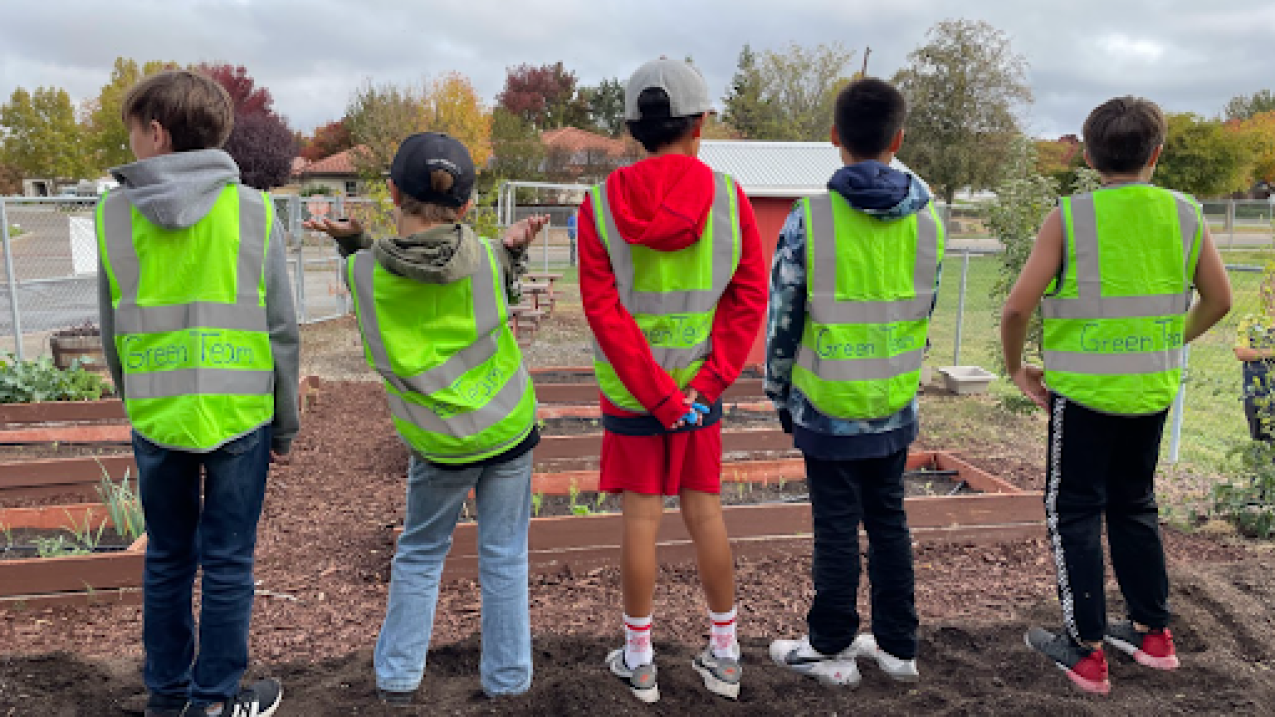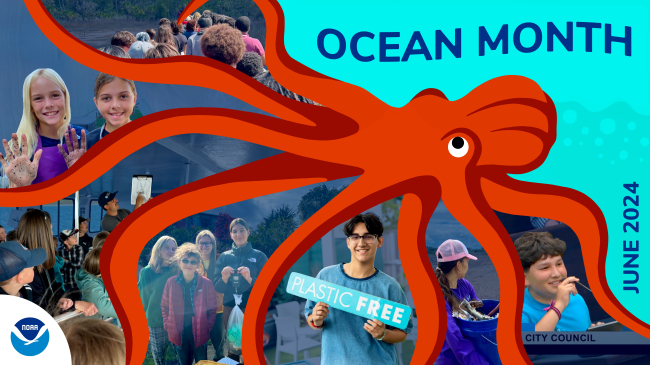As marine debris issues continue to impact our environment, it’s become especially important to equip educators and students to take action starting in their classrooms through litter-reduction education. One Cool Earth (OCE), with the support of a NOAA Marine Debris Program prevention grant, is working with students from 17 participating elementary schools across six school districts in San Luis Obispo, California.

Kermit King Elementary’s “Green Team” helps to lead sustainability projects on campus under One Cool Earth’s guidance. Together, they will improve the school’s waste prevention and management by dedicating their lunch period to make sure all cafeteria trash is properly sorted and their worm composting system is operating efficiently. (Image credit: One Cool Earth)




